10 Facts About Heart Disease in Singapore and How to Protect your Heart Health
Introduction
Heart disease is a term that refers to various conditions that affect the heart and blood vessels, such as coronary artery disease, arrhythmias, heart valve disease, and congenital heart defects. Heart disease can cause serious complications, such as heart attack, stroke, heart failure, and sudden cardiac death. According to the Singapore Heart Foundation, heart disease accounted for 29.5% of all deaths in Singapore in 2019, making it the second leading cause of death after cancer. However, many Singaporeans are not aware of the causes and risk factors of heart disease, and how to prevent or manage it. In this article, we will share 10 facts that Singaporeans should know about heart disease and how to protect their heart health.
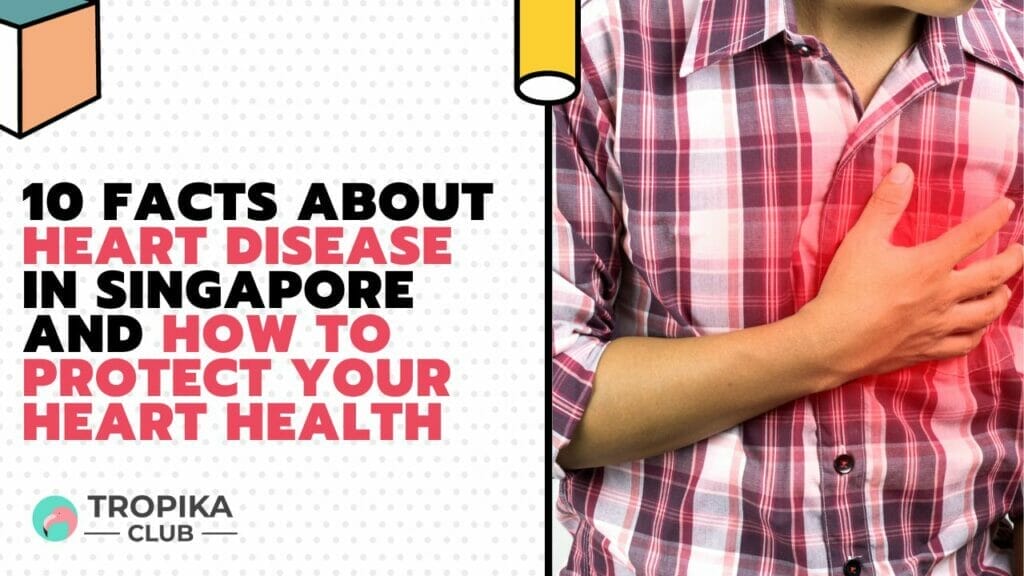
No Time to Read? Here’s a Snappy Summary of This Article
- Silent Killer: Heart disease quietly ranks as Singapore’s leading cause of death, demanding attention and prevention strategies.
- Youth Affected: Surprisingly, heart disease affects not just the elderly but also strikes at a younger age in Singapore.
- Lifestyle Matters: Unhealthy habits like smoking, sedentary lifestyles, and poor diets contribute significantly to heart disease risk.
- Gender Disparity: Men are more susceptible, but heart disease is rising among women, necessitating gender-specific awareness campaigns.
- Modern Solutions: Advanced medical technology and telehealth options offer hope for early detection and effective management.
- Community Engagement: Public education and support groups play a vital role in combating this pervasive health threat.
Table of Contents
- No Time to Read? Here’s a Snappy Summary of This Article
- Fact 1: Heart disease can affect anyone at any age
- Fact 2: Heart disease can be prevented or delayed by lifestyle changes
- Fact 3: Heart disease can be detected early by regular screening
- Fact 4: Heart disease can be treated by medication or surgery
- Fact 5: Heart disease can have different signs and symptoms in different people
- Fact 6: Heart disease can be influenced by genetic and environmental factors
- Fact 7: Heart disease can be complicated by other medical conditions
- Fact 8: Heart disease can be prevented or reversed by a plant-based diet
- Fact 9: Heart disease can be affected by your emotional and mental health
- Fact 10: Heart disease can be influenced by your social and cultural factors
- Meanwhile, Check Out Tropika Club’s Ecosystem of Websites

Fact 1: Heart disease can affect anyone at any age
Many people think that heart disease is a problem that only affects older people or men. However, this is not true. Heart disease can affect anyone at any age, regardless of gender, ethnicity, or lifestyle. According to the National Population Health Survey 2020, 16.8% of Singapore residents aged 18 to 74 years had at least one chronic condition related to heart disease, such as high blood pressure, high cholesterol, or diabetes. Among them, 6.2% were aged 18 to 39 years, and 10.6% were aged 40 to 59 years. Moreover, women are not immune to heart disease. In fact, women are more likely to die from heart disease than breast cancer. Therefore, it is important for everyone to be aware of the signs and symptoms of heart disease and seek medical attention promptly if they experience them.
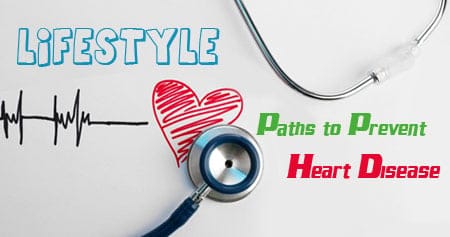
Fact 2: Heart disease can be prevented or delayed by lifestyle changes
The good news is that most forms of heart disease can be prevented or delayed by making healthy lifestyle choices. According to the World Health Organization, up to 80% of premature deaths from heart disease can be avoided by controlling four modifiable risk factors: tobacco use, unhealthy diet, physical inactivity, and harmful use of alcohol. By quitting smoking, eating a balanced diet that is low in salt, sugar, and saturated fat, exercising regularly, and limiting alcohol intake, you can lower your risk of developing heart disease or having a heart attack or stroke. You can also prevent or manage other conditions that can increase your risk of heart disease, such as obesity, diabetes, and high blood pressure.

Fact 3: Heart disease can be detected early by regular screening
Another way to prevent or delay the complications of heart disease is to detect it early by regular screening. Screening is the process of checking for a disease or condition before it causes any symptoms or problems. Screening can help identify people who have a higher risk of developing heart disease or who already have some signs of it. By screening for heart disease, you can take steps to prevent or treat it before it becomes worse or leads to a life-threatening event. There are different types of screening tests for heart disease, depending on your age and risk factors. Some common tests include blood pressure measurement, blood cholesterol test, blood glucose test, electrocardiogram (ECG), and echocardiogram (echo). You should consult your doctor about the appropriate screening tests and frequency for you.

Fact 4: Heart disease can be treated by medication or surgery
If you are diagnosed with heart disease or have had a heart attack or stroke, you may need medication or surgery to treat it. Medication can help control the symptoms and complications of heart disease, such as chest pain (angina), irregular heartbeat (arrhythmia), high blood pressure (hypertension), high cholesterol (hyperlipidemia), and blood clots (thrombosis). Some common types of medication for heart disease include antiplatelets (such as aspirin), anticoagulants (such as warfarin), beta blockers (such as metoprolol), calcium channel blockers (such as amlodipine), angiotensin-converting enzyme (ACE) inhibitors (such as lisinopril), angiotensin II receptor blockers (ARBs) (such as losartan), statins (such as simvastatin), and nitrates (such as nitroglycerin). Surgery can help restore the blood flow to the heart or repair the damaged parts of the heart. Some common types of surgery for heart disease include coronary artery bypass grafting (CABG), percutaneous coronary intervention (PCI) or angioplasty with stenting, valve replacement or repair, and cardiac transplantation. It is important to follow your doctor’s advice on the medication or surgery that is suitable for you. You should also continue to adopt a healthy lifestyle and monitor your condition regularly.
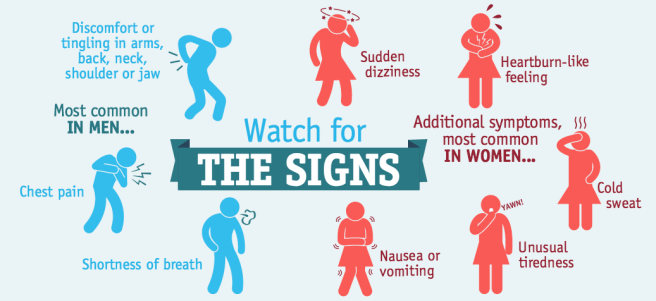
Fact 5: Heart disease can have different signs and symptoms in different people
One of the challenges of detecting and treating heart disease is that it can have different signs and symptoms in different people, depending on the type and severity of the condition, and the individual’s age, gender, and health status. Some people may have no symptoms at all, while others may have mild or severe symptoms that come and go or persist. Some of the common signs and symptoms of heart disease include chest pain or discomfort, shortness of breath, palpitations, dizziness, fainting, fatigue, swelling in the legs or ankles, and cold or numbness in the arms or legs. However, some people may experience less typical or atypical symptoms, such as nausea, vomiting, indigestion, abdominal pain, back pain, neck pain, jaw pain, or shoulder pain. Women are more likely to have atypical symptoms than men. Therefore, it is important to pay attention to any unusual or unexplained changes in your body and seek medical help if you suspect you have heart disease.
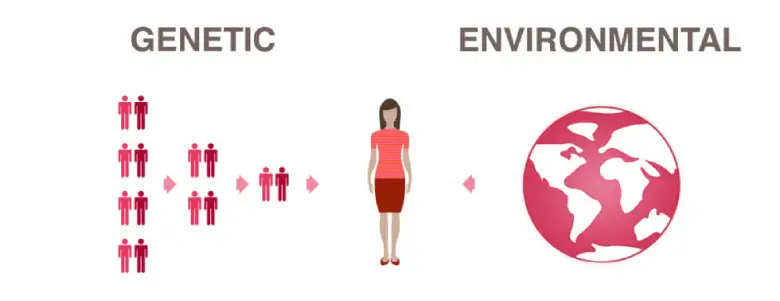
Fact 6: Heart disease can be influenced by genetic and environmental factors
Another factor that affects the risk and development of heart disease is genetics. Genetics refers to the inherited traits that are passed down from your parents to you. Some people may have a genetic predisposition or a higher chance of developing heart disease due to their family history or certain gene mutations. For example, familial hypercholesterolemia is a genetic disorder that causes high levels of cholesterol in the blood and increases the risk of early-onset coronary artery disease. However, genetics is not destiny. Environmental factors, such as diet, lifestyle, stress, pollution, and infections, can also influence the expression and function of your genes and affect your heart health. Therefore, even if you have a genetic risk of heart disease, you can still modify your environmental factors to lower your risk or delay the onset of the disease.
_
Read Also:
Top 10 Best Cardiology Clinics in Singapore
_
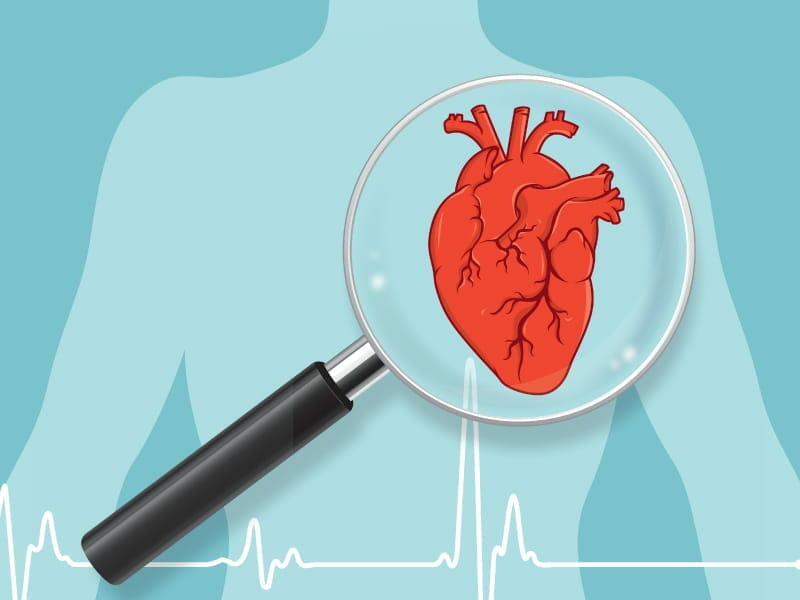
Fact 7: Heart disease can be complicated by other medical conditions
Heart disease can also be complicated by other medical conditions that can worsen its prognosis or outcome. Some of these conditions include diabetes mellitus (DM), chronic kidney disease (CKD), chronic obstructive pulmonary disease (COPD), anemia, thyroid disorders, and depression. These conditions can affect the function and structure of the heart and blood vessels, increase the workload and stress on the heart, impair the delivery and utilization of oxygen and nutrients to the heart tissue, interfere with the medication and treatment of heart disease, and reduce the quality of life and mental health of the patient. Therefore, it is essential to manage these conditions well and coordinate with your doctor on the best care plan for your heart health.
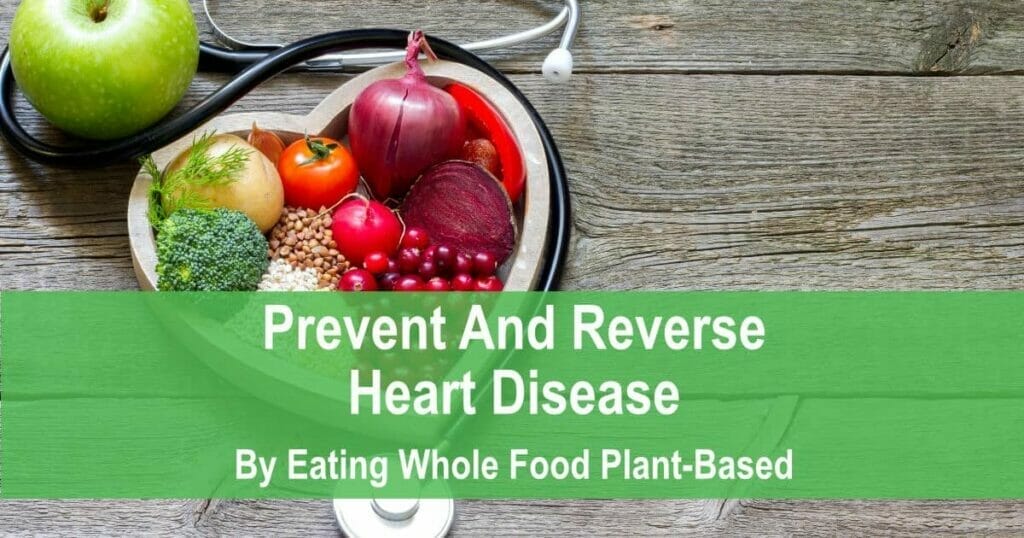
Fact 8: Heart disease can be prevented or reversed by a plant-based diet
One of the most effective ways to prevent or reverse heart disease is to adopt a plant-based diet. A plant-based diet is a diet that consists mainly or entirely of foods derived from plants, such as fruits, vegetables, grains, legumes, nuts, and seeds. A plant-based diet can lower your risk of heart disease by reducing the intake of animal products that are high in saturated fat, cholesterol, and animal protein, and increasing the intake of plant products that are high in fiber, antioxidants, phytochemicals, and plant protein. A plant-based diet can also lower your blood pressure, cholesterol, blood sugar, inflammation, and oxidative stress, and improve your endothelial function and blood flow. Several studies have shown that a plant-based diet can not only prevent but also reverse the progression of coronary artery disease.

Fact 9: Heart disease can be affected by your emotional and mental health
Your emotional and mental health can also affect your heart health. Emotions such as anger, anxiety, sadness, and stress can trigger or worsen the symptoms and complications of heart disease. For example, anger can increase your blood pressure and heart rate, and cause arrhythmias or irregular heartbeats. Anxiety can cause chest pain or palpitations that mimic a heart attack. Sadness can lead to depression, which can lower your motivation and adherence to healthy behaviors and treatments. Stress can activate your sympathetic nervous system and release hormones such as adrenaline and cortisol, which can increase your blood pressure, blood sugar, inflammation, and clotting tendencies. Therefore, it is important to manage your emotions and mental health by seeking professional help if needed, practicing relaxation techniques such as deep breathing or meditation, engaging in positive activities such as hobbies or socializing, and expressing your feelings in healthy ways such as talking or writing.

Fact 10: Heart disease can be influenced by your social and cultural factors
Your social and cultural factors can also influence your heart health. Social factors include your relationships with your family, friends, colleagues, and community. Having strong and supportive social ties can protect your heart health by providing you with emotional support, practical assistance, advice, feedback, and companionship. Having weak or negative social ties can harm your heart health by causing you loneliness, isolation, conflict, or abuse. Cultural factors include your beliefs, values, norms, and practices that are related to your ethnicity, religion, or nationality. Having a positive cultural identity can protect your heart health by giving you a sense of belonging, meaning, and purpose. Having a negative cultural identity can harm your heart health by causing you discrimination, prejudice, or oppression. Therefore, it is important to cultivate positive social and cultural factors by building healthy and respectful relationships with others, and embracing diversity and inclusion in society.
Conclusion
Heart disease is a common and serious health problem in Singapore, but you can do something about it. By learning the facts about heart disease and how to prevent and treat it, you can take control of your heart health and improve your quality and quantity of life. Your heart is not just a pump that circulates blood in your body, but also a reflection of your emotions and passions for life. So treat it well, and it will reward you.

Frequently Asked Questions (FAQ)
What is heart disease and what are the common types of heart disease in Singapore?
Heart disease is a general term that refers to any condition that affects the heart or blood vessels. Some of the common types of heart disease in Singapore are coronary artery disease, heart failure, arrhythmia, and valvular heart disease.
What are the symptoms of heart disease and how can I detect them early?
The symptoms of heart disease may vary depending on the type and severity of the condition. Some of the common symptoms are chest pain, shortness of breath, palpitations, swelling of the legs, fatigue, and fainting. To detect heart disease early, you should go for regular health screenings and check-ups, especially if you have risk factors or a family history of heart disease.
How can I prevent or reduce the risk of heart disease?
You can prevent or reduce the risk of heart disease by adopting a healthy lifestyle, such as eating a balanced diet, exercising regularly, quitting smoking, managing stress, and maintaining a healthy weight. You should also avoid or limit alcohol intake, salt intake, and saturated fat intake.
What are the treatment options for heart disease and where can I find them in Singapore?
The treatment options for heart disease depend on the type and severity of the condition. Some of the common treatments include medication, angioplasty, stenting, bypass surgery, valve repair or replacement, pacemaker implantation, or cardiac rehabilitation. You can find these treatments in various hospitals and clinics in Singapore, such as the National Heart Centre Singapore, SingHealth, Mount Elizabeth Hospital, and Gleneagles Hospital.
How much does it cost to treat heart disease in Singapore and is it covered by insurance or subsidies?
The cost of treating heart disease in Singapore varies depending on the type of treatment, the hospital or clinic, and the patient’s condition. Generally, the cost ranges from a few hundred dollars to tens of thousands of dollars. Some of the costs may be covered by insurance or subsidies, such as MediShield Life, Medisave, Medifund, or Integrated Shield Plans. You can check with your insurance provider or hospital for more details on the coverage and eligibility.
How can I support Tropika Club Magazine and its mission to provide health and wellness information to Singaporeans?
You can support Tropika Club Magazine by subscribing to our newsletter, following us on social media, sharing our articles with your friends and family, and giving us your feedback. You can also donate to our cause or become a sponsor or partner with us.

Have an Article to Suggest?
Tropika Club is always looking for new and exciting content to feature in their magazine and they value the input of our readers. If you have any noteworthy content or articles that you believe would be a great addition to Tropika Club’s magazine, we are open to suggestions and encourage you to reach out to us via email at [email protected]. By doing so, Tropika Club values your expertise and knowledge in the matter and appreciates your willingness to help. We will review your recommendations and update our list accordingly
Meanwhile, Check Out Tropika Club’s Ecosystem of Websites

Tropika Club Magazine – Tropika Club Magazine is a Singapore-based publication that features articles on a wide range of topics with a focus on local businesses and content for the region. The magazine emphasizes supporting local businesses through its #SupportLocal initiative, which includes coverage of everything from neighborhood hawker stalls to aesthetic clinics in town. In addition to highlighting local businesses, Tropika Club Magazine also covers a variety of local content, including beauty, lifestyle, places, eats, and what’s on in Singapore and the Asia Pacific region.
Tropika Club Deals – Tropika Club Deals is a leading online deals and voucher shopping site in Singapore, offering amazing discounts on beauty, wellness, and fitness products and services. It’s the perfect platform for customers who want to discover the best deals without having to commit to a specific appointment date and time. These deals are available at major beauty stores, facial salons, hair salons, and other brands in Singapore, with no minimum spend required. Choose from guaranteed discounted deals in the categories of hairstyling, hair removal, facial & aesthetics, body slimming, brows & lashes, nails & makeup, massage & spa or fitness & wellness. Tropika Club Deals is also ideal for customers who want to buy vouchers as gifts or to use for the future. So whether you’re looking to save money on your next haircut or want to treat yourself to a relaxing massage, Tropika Club Deals has got you covered with the best voucher and coupon deals in Singapore!




